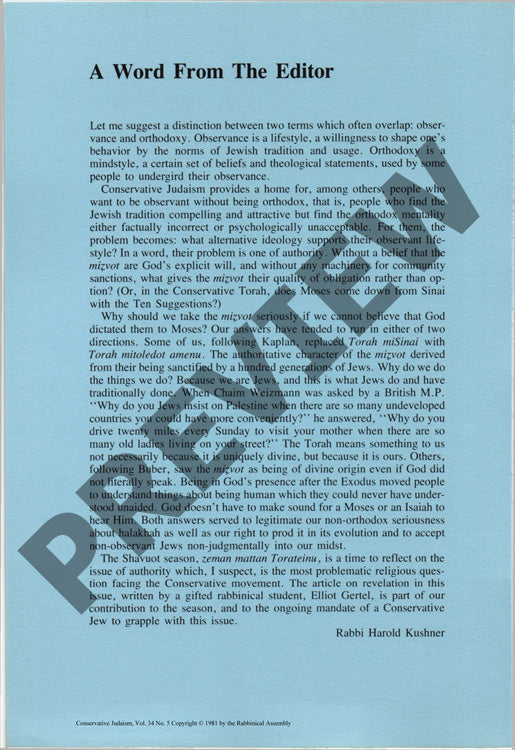A Word from the Editor
Couldn't load pickup availability
This editorial examines the theoretical foundations underlying Conservative Judaism's approach to religious authority and observance. The author presents a conceptual distinction between observance as a behavioral lifestyle guided by Jewish tradition and orthodoxy as a theological mindset supporting such behavior. The analysis addresses a fundamental challenge within Conservative Judaism: establishing religious authority for the mitzvot without accepting orthodox beliefs in divine dictation of Torah. Two primary ideological responses are identified through textual analysis of Conservative Jewish thought. The first approach, attributed to Kaplan, grounds authority in historical continuity and communal tradition (Torah mitoledot amenu), wherein practices derive legitimacy from generational Jewish observance rather than divine command. The second approach, following Buber's theology, maintains divine origins of mitzvot while rejecting literal divine speech, emphasizing experiential revelation through human encounter with the divine presence. The study concludes that both theological frameworks successfully legitimate non-orthodox halakhic seriousness while preserving Conservative Judaism's evolutionary approach to religious law and inclusive attitude toward non-observant Jews. The author identifies religious authority as the most significant theological challenge confronting the Conservative movement, requiring continued scholarly engagement and practical resolution.

More Information
-
Physical Description
-
Publication Information
Published 1981
ISBN
-
Publication Credits
Harold Kushner

